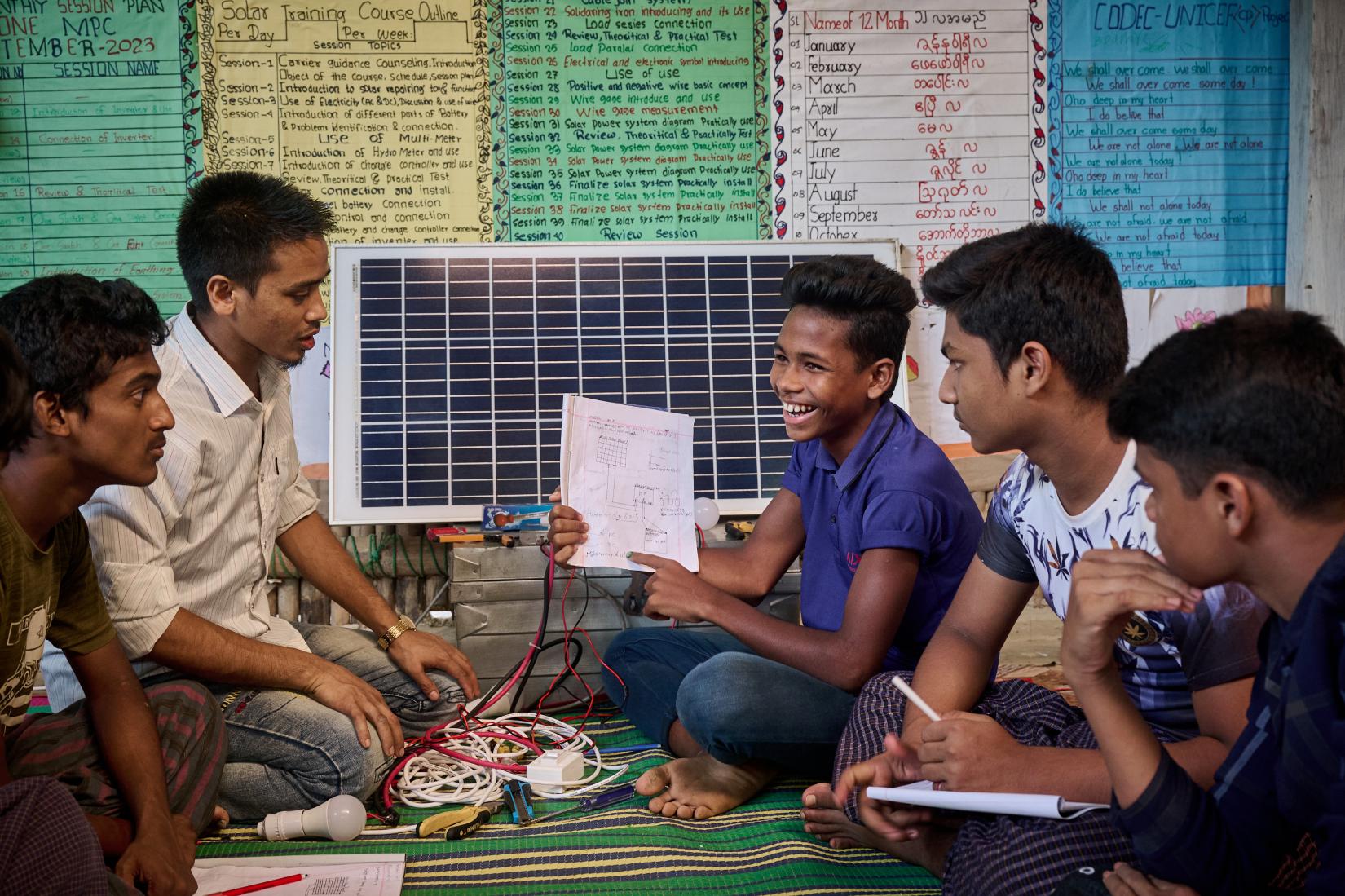From child labour to education
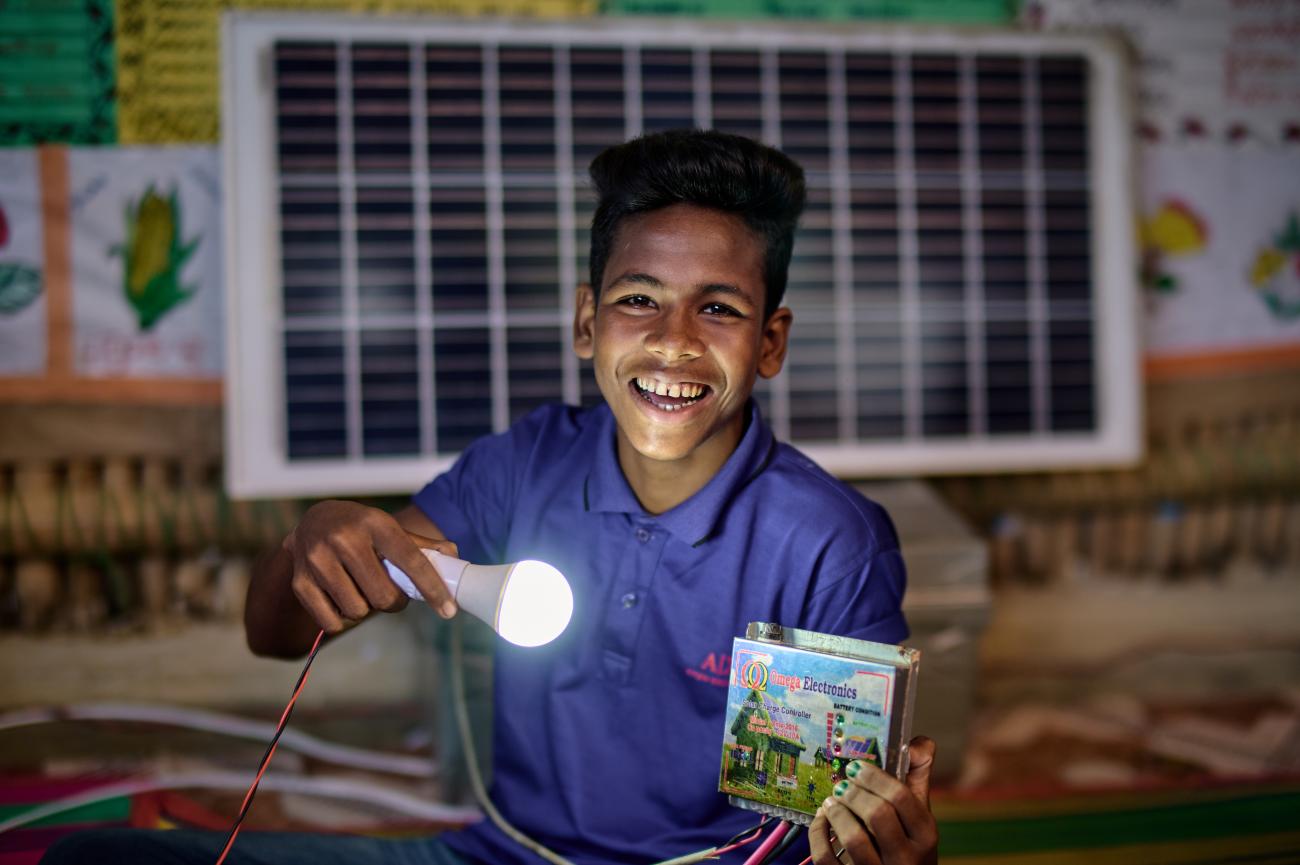
Rohingya refugee children find education and protection at UNICEF-supported multi-purpose centres¬
Nur was only seven when he fled from his home in Myanmar in 2017 with his parents and siblings. Since then, he has been residing in the sprawling refugee camps in Cox’s Bazar, where displacement is a daily reality and child labour has become a norm for many Rohingya families.
The issue of violence against children, though often concealed behind closed doors, is all too common among the Rohingya community. According to data from case workers in the camps, around one in ten Rohingya children face physical abuse at home.
When first asked about his situation, Nur, perhaps influenced by familial loyalty or fear, denied any harsh realities. The truth, however, unfolded gradually, revealing a narrative of child abuse and neglect.
“My father is 70 now and was once a farmer in Myanmar, but he can no longer work due to his old age,” says Nur. “I have seven siblings and our family has been struggling for a while now. My father decided to pull me out of the learning centre so that I could work.”
Data from case workers indicates that around 8 per cent of Rohingya children are forced into labour, with tasks ranging from carrying heavy loads to working in fields. Nur's case is not an anomaly – it mirrors the struggles of countless Rohingya children whose dreams are sacrificed due to immediate economic needs.
“My father used to yell at me and sometimes give me a beating or two,” Nur shares. “During such times, I used to go to the field. I enjoy playing football with my friends but on such days, I could not get myself to play. I felt sad.”
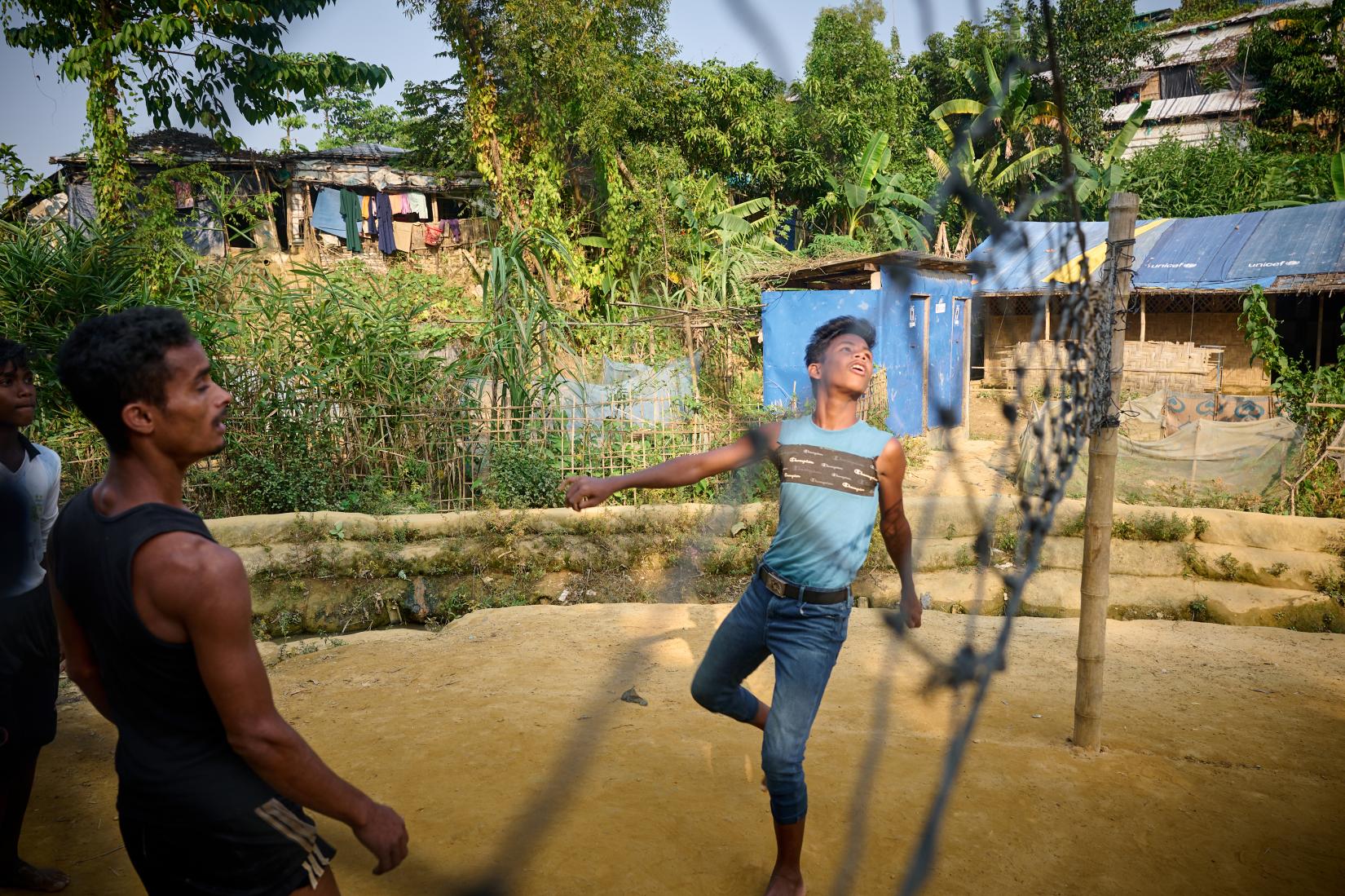
Children exposed to conflict, natural disasters and other humanitarian crises can suffer severe psychological and social consequences. Many Rohingya refugee children living in Cox’s Bazar suffer from distress, anxiety, depression and other stress-related problems. The complex conditions and limited services in the camps put children at risk of various forms of violence, including trafficking, child marriage, child labour and gender-based violence. This can take a long-term toll on their emotional well-being, physical health and social development.
Alongside partners, UNICEF has set up safe spaces – including multi-purpose centres – for girls, boys and women, thanks to support from the European Union. The centres provide structured and non-structured psychosocial support, case management services and life-skill sessions.
Nur's case, initially concealed by familial denial, surfaced when an adolescent peer leader from the multi-purpose centre reported seeing him hauling gas cylinders and toiling in fields.
Salauddin, a case management worker at the centre, played a pivotal role in identifying and addressing Nur’s situation. He embarked on a mission to inform Nur’s parents about the hardships and negative consequences of child labour. He urged them to understand the impact of neglect on the young mind and to stop pushing him to work and instead allow him to seek learning and support at the multi-purpose centre.
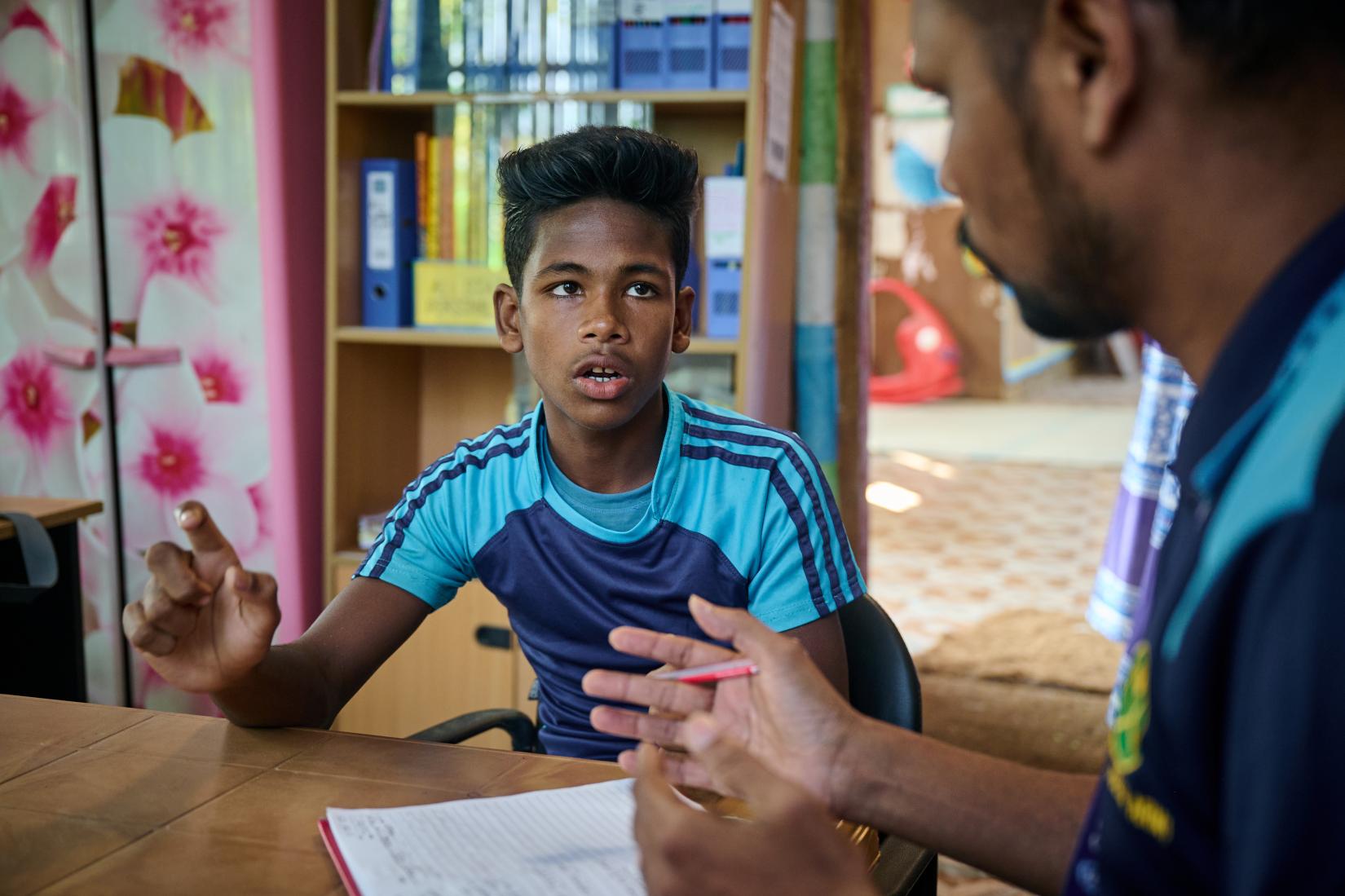
“After Salauddin came to my house and spoke to my parents, my father stopped beating me. He takes good care of me now,” Nur says with a smile. “Since my father became aware that I could learn skills here and earn some money, he has enrolled me in the multi-purpose centre. I have been coming here for eight months now.”
In Cox’s Bazar, UNICEF is supporting 161 social and case workers like Salauddin to provide case management services for children in the Kutupalong refugee camp and in host communities. As part of this support, UNICEF works closely with the Department of Social Services and partners to provide trainings on interagency tools and guidelines to strengthen the capacity of the social services workforce.
Since enrolling in the multi-purpose centre, Nur has attended several psychosocial support sessions to help manage his emotions related to stress, fear, frustration and anxiety. The centre also provides life-skills sessions to help children and adolescents recognize and deal with crises, solve problems, and form and maintain healthy relationships. Children who have received psychosocial support can express themselves freely.
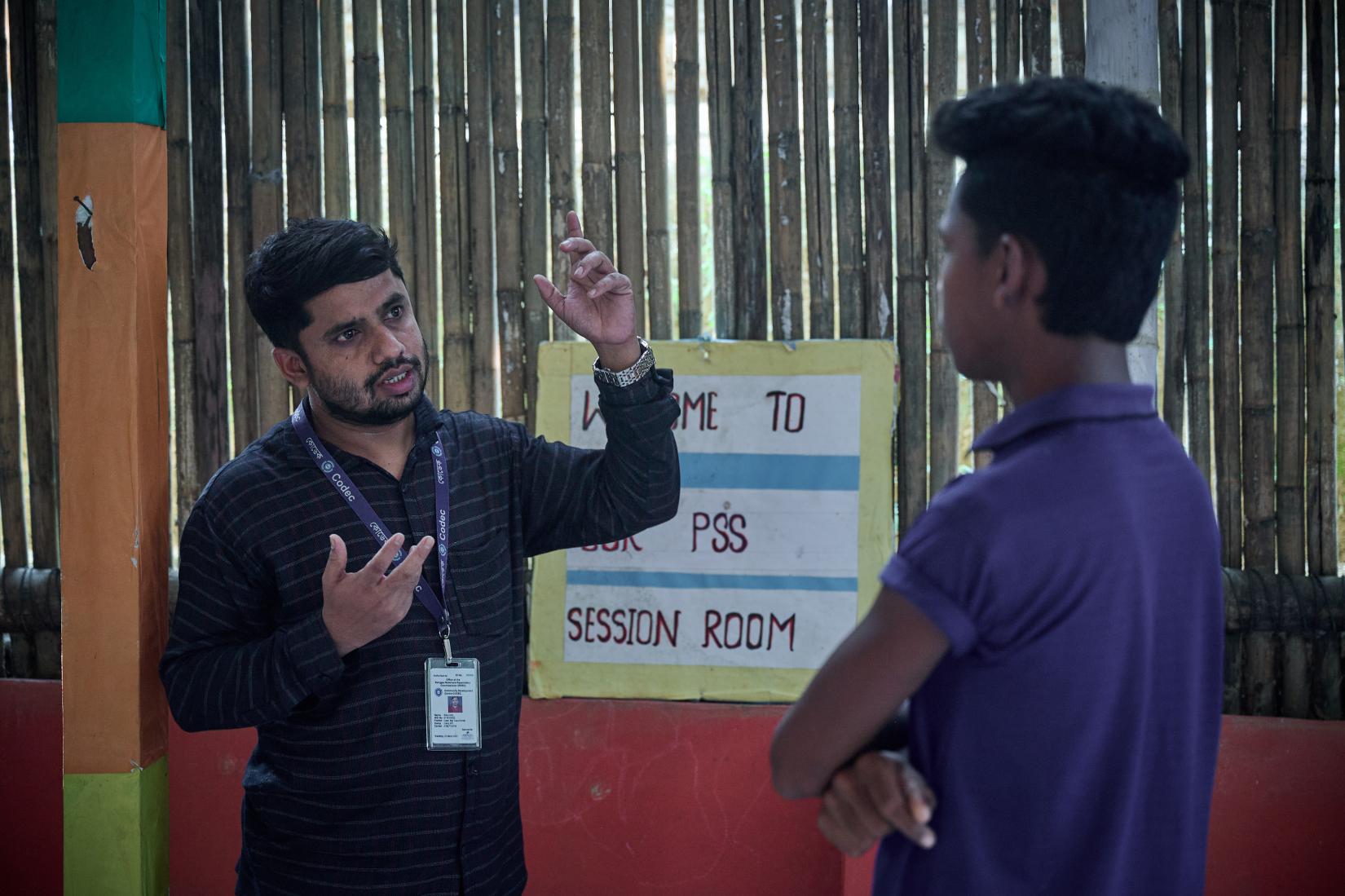
Nur has discovered a passion for life-skills and solar technology. He has been learning to fix solar panels to help support his family. His newfound knowledge has become a bridge to connect with his parents, who are eager to see their son thrive.
“When I return home after each life-skill session, I share the positive awareness messages with my parents,” Nur says. “I can see a change in them too. I once dreamt of becoming a teacher, but I thought I would never be able to be one. But now, I feel that I can learn and become a teacher like I always wanted to.”
